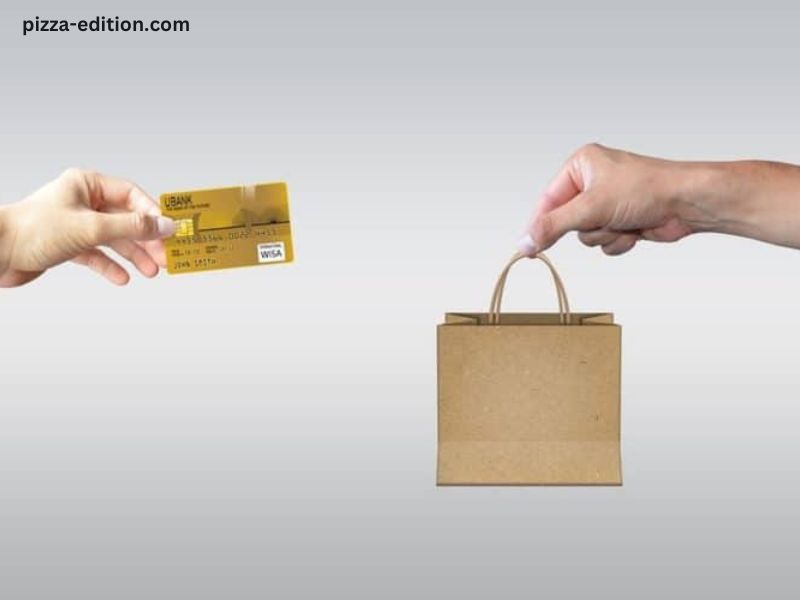Purchases?Using a credit card to finance purchases can be a convenient and practical solution, but it’s essential to understand the potential advantages and drawbacks. In this article, we’ll explore the various reasons for using a credit card for financing, and identify which positive reason may not be the most ideal.
Introduction to Using Credit Cards for Financing Purchases
Credit cards have become a ubiquitous tool in modern financial management, offering a range of benefits and flexibility for consumers. From emergency funds to building credit history, credit cards can serve as a valuable resource when used responsibly. However, it’s crucial to approach credit card financing with a clear understanding of the potential implications.
Advantages of Using a Credit Card for Financing Purchases
When used wisely, credit cards can provide several advantages for financing purchases:
- Convenience and Flexibility: Credit cards offer a convenient way to make purchases, allowing you to spread out payments over time and manage your cash flow more effectively.
- Rewards and Incentives: Many credit card issuers offer various rewards programs, such as cash back, points, or miles, which can provide additional value for your spending.
- Improved Credit Score: Responsible use of a credit card and making timely payments can help build and improve your credit score, which can be beneficial for future financial endeavors.
- Purchase Protection: Credit cards often come with built-in purchase protection features, such as extended warranties, return policies, and fraud liability coverage, which can provide added security for your transactions.
Common Positive Reasons for Using a Credit Card to Finance Purchases
There are several positive reasons why you might choose to use a credit card to finance your purchases:
- Emergency Funds: Credit cards can serve as a source of emergency funds, allowing you to cover unexpected expenses or critical needs when cash flow is limited.
- Budgeting and Cash Flow Management: Credit cards can help you manage your cash flow more effectively, enabling you to make purchases when needed and pay off the balance over time.
- Building Credit History: Responsible use of a credit card and making timely payments can contribute to building a strong credit history, which is essential for future financial opportunities.
- Rewards and Cashback: Many credit cards offer rewards programs that can provide financial benefits, such as cash back, points, or miles, for your purchases.
Exploring the Drawbacks of Using a Credit Card for Financing Purchases
While credit cards can offer various advantages, it’s important to be aware of the potential drawbacks:
- High-Interest Rates: Credit cards typically have higher interest rates compared to other financing options, such as personal loans or home equity lines of credit, which can make the cost of borrowing more expensive.
- Potential for Overspending: The ease and convenience of credit card usage can lead to overspending and the accumulation of debt, which can have long-term financial consequences.
- Additional Fees: Credit card use may incur various fees, such as annual fees, balance transfer fees, or late payment fees, which can add to the overall cost of financing.
- Negative Impact on Credit Score: Mismanaging credit card usage, such as making late payments or exceeding credit limits, can have a negative impact on your credit score, making it more challenging to access favorable financing options in the future.
Which Positive Reason for Using a Credit Card May Not Be Ideal?
Among the common positive reasons for using a credit card to finance purchases, the one that may not be the most ideal is emergency funds.
While credit cards can serve as a source of emergency funds, it’s important to recognize that this should be a last resort option. Relying on credit cards for emergency funds can lead to the accumulation of debt, which can be challenging to manage and may result in long-term financial consequences.
It’s generally recommended to have a dedicated emergency fund, separate from your regular savings, to cover unexpected expenses. This emergency fund should ideally be accessible and sufficient to cover at least 3-6 months’ worth of essential living expenses. By having a dedicated emergency fund, you can avoid the potential pitfalls of using credit cards for this purpose, such as high-interest rates and the risk of overspending.
Understanding the Potential Risks of Credit Card Financing
When using a credit card to finance purchases, it’s crucial to be aware of the potential risks:
- Debt Accumulation: The ease of credit card usage can lead to overspending and the accumulation of debt, which can be challenging to manage and may have long-term financial consequences.
- High-Interest Rates: Credit cards typically have higher interest rates compared to other financing options, which can make the cost of borrowing more expensive.
- Negative Impact on Credit Score: Mismanaging credit card usage, such as making late payments or exceeding credit limits, can have a negative impact on your credit score, making it more challenging to access favorable financing options in the future.
- Additional Fees: Credit card use may incur various fees, such as annual fees, balance transfer fees, or late payment fees, which can add to the overall cost of financing.
Alternatives to Using a Credit Card for Financing Purchases
If you’re looking to finance purchases, there are alternative options to consider:
- Personal Loans: Personal loans often have lower interest rates compared to credit cards and can provide a more structured repayment plan.
- Home Equity Loans or Lines of Credit: If you own a home, you may be able to tap into your home’s equity to finance purchases at a lower interest rate.
- Savings and Budgeting: Saving up and paying for purchases with cash can help you avoid the potential pitfalls of credit card financing and the associated interest charges.
- Layaway or Buy Now, Pay Later Programs: Some retailers offer alternative financing options, such as layaway or buy now, pay later programs, which can provide a more structured and potentially lower-cost way to finance purchases.
Tips for Responsible Credit Card Usage
If you choose to use a credit card for financing purchases, it’s essential to do so responsibly:
- Create a Budget: Develop a comprehensive budget that accounts for your income, expenses, and credit card payments to ensure you can manage your finances effectively.
- Pay Your Balance in Full: Whenever possible, aim to pay your credit card balance in full each month to avoid accruing interest charges.
- Monitor Your Spending: Regularly review your credit card statements and track your spending to identify any patterns or areas where you may be overspending.
- Maintain a Healthy Credit Utilization Ratio: Try to keep your credit card balances below 30% of your available credit limit to maintain a healthy credit utilization ratio.
Considering Your Financial Goals and Circumstances
When deciding whether to use a credit card for financing purchases, it’s essential to consider your overall financial goals and circumstances. Carefully evaluate your income, expenses, and existing debt levels to determine the most appropriate financing solution that aligns with your long-term financial well-being.
Remember, responsible credit card usage can be a valuable tool in your financial toolkit, but it’s crucial to approach it with caution and a clear understanding of the potential risks and alternatives. By making informed decisions and prioritizing your financial goals, you can navigate credit card financing effectively and achieve your financial objectives.
Conclusion
In conclusion, while credit cards can offer various advantages for financing purchases, it’s essential to approach their use with a clear understanding of the potential drawbacks and risks. By recognizing that emergency funds should not be the primary positive reason for using a credit card, and by considering alternative financing options and practicing responsible credit card usage, you can make informed decisions that align with your long-term financial well-being.




